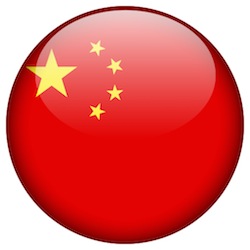Investment Strategies
Lack Of Variety For Investors Looking To Stay With China's Long-Run Growth Story - Matthews Asia

For investors willing to see through the current turmoil and gain exposure to China's long-term prospects, an issue is the lack of choice in some private sectors, a prominent investment firm says.
Any investor taking negative bets on Chinese equities in the past year or so would have suffered, a prominent Asia investment specialist says, while bemoaning a dearth of choice in the country’s equity market.
Big falls in mainland Chinese shares have created an atmosphere of alarm and suspicion around the world’s second-largest economy, and policymakers in the country have arguably made problems worse by intervention. But despite all this, investors who had tried to short-sell China equities would not have made much money, Richard Horrocks, chief investment officer, Matthews Asia, said in a recent note.
“There has been a lot written about China recently. The fall in the A-share market precipitated much concern over the potential for a `bubble` in the markets as well as the economy. In fact, so much pessimism and suspicion surrounds China that it seems to lurch from one crisis of confidence to another in the minds of international investors - without so much as a glimmer of hope in between,” Horrocks said.
“It is true that China’s economy is slowing and that the capital inflows have recently reversed in a big way. All of this is causing investors to fear the worst. And the authorities have not helped with their ham-fisted attempt to prop up domestic markets whilst maintaining quite a tight monetary policy. After all, the total assets of the People’s Bank of China have increased by only 2 per cent over the last year and core inflation is running at about 1.7 per cent,” he continued.
The MSCI China A 50 Index of the mainland market’s 50 largest stocks by market cap shows total returns for the year so far are under water, -0.89 per cent, and over the past three month, the slide has been more than 17.9 per cent.
Horrocks points out that besides the mainland’s A-shares market segment, the Hong Kong H-shares sector offers by far the most common way to access China’s economy. “All the negative headline news has just served to bring Hong Kong equity valuations down to very low levels in the context of their own history. On a forward price-to-earnings ratio, they are comparable to times like the Global Financial Crisis or the outbreak of severe acute respiratory syndrome (SARS),” he said.
Choice problem
With such valuation attractions in mind, Horrocks said he is nevertheless “perturbed” by the lack of choice in sectors such as media, despite the popularity of Western-made films such as blockbuster Jurassic World, which has made $299 million in China, compared with $624 million in the US.
“Outside of the role played by some online media, China’s market seems horribly underdeveloped in terms of private enterprise. The example I use to illustrate this is one involving football/soccer…About 10 years ago, I watched Shanghai host Beijing in a competitive game. It had everything you could wish for: a huge stadium, a close score line, a last-minute, dubious refereeing decision to give a penalty, which was protested by an angry pitch 'invasion' by both coaching staff and players at the end. Trouble was, it was watched by just a few hundred people,” he said.
“Now, before you start telling me that this is because soccer isn't big in China or wasn't big then, I can tell you that is nonsense. I witnessed first-hand a spontaneous night-time party of thousands in Tian'anmen square after China defeated Japan in a game in Tokyo, nearly 30 years ago. The atmosphere in the square was thrilling! And no, it’s not because China is too poor to yet support a huge sporting culture. Look at India for example. It has a lower per capita income, and yet its cricket grounds fill out with tens of thousands to watch their favourite stars play. And their premier league is able to pay foreign stars millions of dollars to come play a short season of cricket in the Indian Premier League,” he said.
The dearth of home-grown private sector media is holding China back in some sectors, he said. “India has a competitive media that is relatively free from central control. This allows them to have diversity of programming and enables them to attract large audiences, including for sports. In China, the media remains strictly controlled - both for content and even for tone of programming,” he said.
“It [China] simply has not developed a private media industry that is able to devote as many resources to growing the sports and entertainment industries that other countries have. This impacts what we can invest in. We lack really good media companies to put in the portfolios. It is true that censorship creates protected markets for certain media or online companies, probably to their benefit in some sense. But it also prevents, or at least severely hinders, the growth of a vibrant entertainment industry. And, as an investor, I wish we had more choice in what I believe is likely to be a huge future market,” he added.